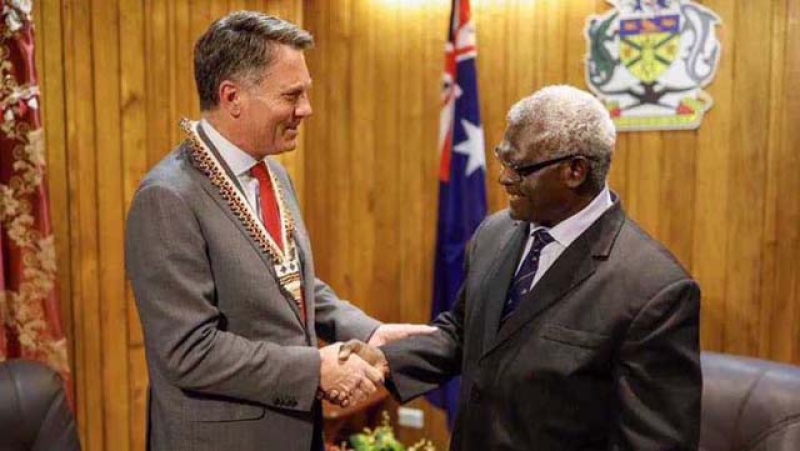- Body of Osman Hadi Returns to Dhaka From Singapore Late |
- Fakhrul condemns attacks on media, calls for unity, justice |
- 2 cops among 4 hurt in clash outside Indian Assit H.C. in Ctg |
- Inqilab Moncho urges people to avoid violence |
- Hadi’s death: Prothom Alo, Daily Star offices set afire |
Solomons PM to discuss security ties in Australia

The new leader of Solomon Islands will visit Australia from Sunday to discuss security ties, government officials said -- a sensitive area since the Pacific nation signed a secretive pactwith China.
Solomons Prime Minister Jeremiah Manele will visit Canberra and Queensland on his week-long trip, Australian officials said.
It will be his first visit to Australia as prime minister since he replaced enthusiastic Beijing supporter Manasseh Sogavare in May.
Prime Minister Anthony Albanese will host Manele at parliament for talks to strengthen relations "including through security partnerships", his office said in a statement on Friday.
"We highly value our position as Solomon Islands' partner of choice," Albanese said.
"My government is committed to listening and working with Solomon Islands asequals, and to discussing how we can deepen our partnership into a new era of cooperation."
Discussions will include police cooperation, humanitarian aid and a scheme offering agricultural work in Australia for Solomon Islanders.
Manele has been less strident in his support for China than Sogavare, who severed diplomatic ties with Taiwan and was seen as deeply sceptical of both Australia and the United States.
He has nevertheless reaffirmed his support for the "one-China" principle and expressed his "deep appreciation" for Chinese investment and aid.
Sogavare signed a security pact with Beijing in 2022 that set alarm bells ringing in Western capitals.
Its contents have not been officially released.
Australia and the United States feared China could use the agreement as aspring board to establish a permanent military presence in the South Pacific, reports BSS.

